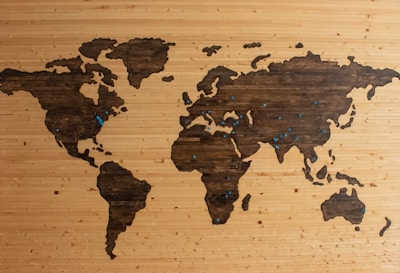Catalyzing engagement and transformation through applied research | PhD | MBA | FACS JP FAICD AM
Scope & Impact
44
Countries

26K+
Subscribers

1,000+
Publications

300+
Events

35+
Years Experience

Core Skills & Expertise
Core Competencies
Executive Leadership
Strategic leadership of globally distributed, multicultural teams across 44 countries, delivering organisational transformation, complex program oversight, and mission-aligned growth. Extensive experience in business development, partnerships, and relationship management.
Governance & Ethics
Establishing and maintaining rigorous ethical standards, editorial policies, and quality control frameworks that ensure research integrity and scholarly excellence. Design and steward robust governance, ethical, and quality frameworks supporting research integrity, donor compliance, and accountable decision-making.
Stakeholder Engagement
Building and nurturing relationships with publishers, academic institutions, funding bodies, and industry partners to advance collaborative research initiatives. Senior-level engagement with governments, funders, academic institutions, multilaterals, and private-sector partners to enable collaborative, multi-party initiatives.
Change & Systems Management
Leading organisational transitions through digital transformation, implementing innovative technologies and processes that enhance operational efficiency and impact. Leadership of large-scale digital and operational change, embedding data-driven processes, enabling technologies, and continuous improvement across complex systems.
Strategic Partnerships & Finance Mobilisation
Development and coordination of cross-sector partnerships, financing instruments, and funding strategies aligned with climate, development, and public-good objectives.
Thrivable Systems Design & Innovation
Developing frameworks and strategies that enable organisations to integrate thrivability principles into core business models and innovation processes. Creation of integrated frameworks that operationalise thrivability across governance, policy, finance, and organisational strategy.
Applied & Transitional Research
Translating theoretical insights into practical applications, bridging the gap between academic research and real-world organisational implementation. End-to-end research leadership translating systems theory into implementable models, tools, and programs with measurable real-world impact.
Digital & Knowledge Ecosystems
Expertise in emerging technologies, digital platforms, and their strategic application in creating resilient, adaptive organisational structures. Integration of traditional first-nations perspectives. Strategic application of digital platforms, data systems, and emerging technologies to support adaptive, scalable, and resilient organisational ecosystems.
Knowledge Translation & Leadership
Communicating complex research findings to diverse audiences through publications, presentations, and thought leadership across multiple platforms. Clear articulation of complex research and policy insights for decision-makers, practitioners, and global audiences through high-impact publications and engagements.
Complex Analysis & Decision Support
Advanced analysis of socio-ecological, institutional, and financial contexts to inform strategic choices, risk management, and investment readiness.
Testimonials
"While I have not worked with Morris in a business or professional capacity I have known him for many years through the Australian Computer Society (ACS). What has impressed me about Morris has been his willingness to voluntarily devote his time and energies to the ACS as an office bearer, committee member and to give lectures and presentations in his areas of knowledge. I know Morris to be passionate in his views and to have the energy to pursue his convictions."
"I have worked with Morris for more than 2 years setting up a company from ground up. What I like about Morris is that he treats a person as a friend and not as a subordinate. He is a person that's easy to get along with. Morris is a visionary and has capabilities on both technical and business side of things in the IT world."
"Morris has been an inspiration to many organisations he has worked with. His ability to work through and create innovative solutions is a credit to him. I look forward to working with him again."
"Dr Fedeli's editorial leadership transformed our research output. His ability to distill complex technical findings into accessible, impactful publications increased our stakeholder engagement by 340%. His rigorous yet collaborative approach set a new benchmark for our organisation."
"Working with Morris on our global training initiative was exceptional. He designed and delivered a 6-module executive program that reached 2,400 participants across 18 countries. Participant satisfaction scored 4.8/5.0, and 89% reported immediate application of concepts in their roles."
"Dr Fedeli recruited and onboarded our distributed editorial team of 45 contributors across 12 time zones. His systematic approach reduced time-to-productivity by 55% while maintaining quality standards. His mentorship elevated our team's capabilities significantly."
"Morris's strategic advisory on our sustainability transformation was transformative. His pracademic approach—combining deep research with hands-on implementation—helped us reduce carbon emissions by 62% while improving operational efficiency. His frameworks are now standard across our global operations."
"As a board member, Dr Fedeli brings exceptional strategic insight and governance expertise. His ability to synthesize complex market dynamics into clear, actionable strategies has been invaluable. His questioning always pushes us to think beyond conventional approaches."
"Dr Fedeli's research collaboration elevated our policy development process. His data-driven approach and ability to translate academic insights into practical policy recommendations resulted in legislation that gained bipartisan support. A true thought leader in sustainable innovation."


